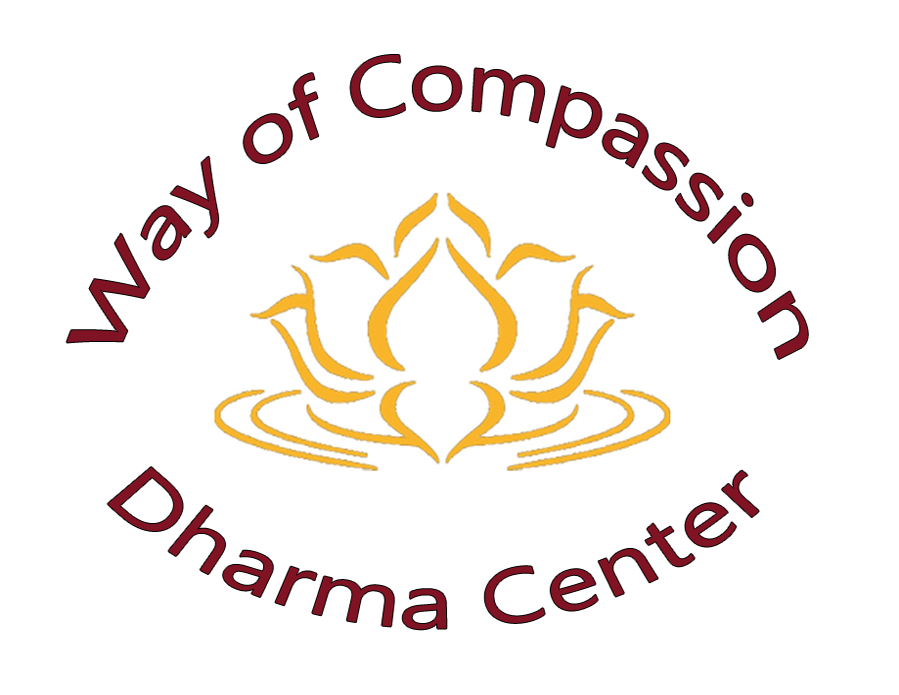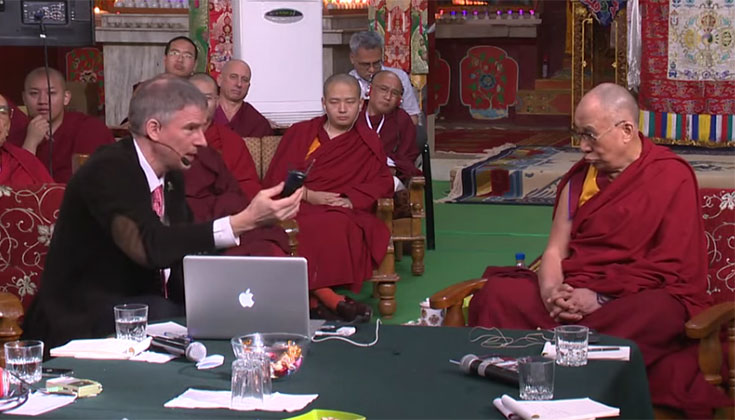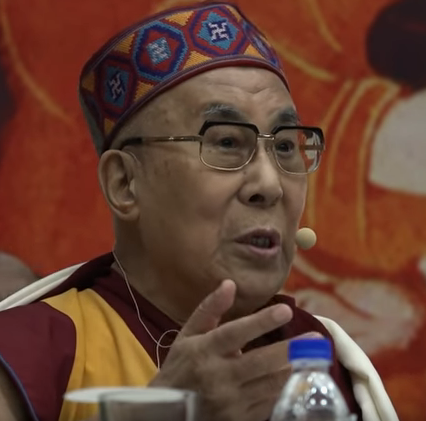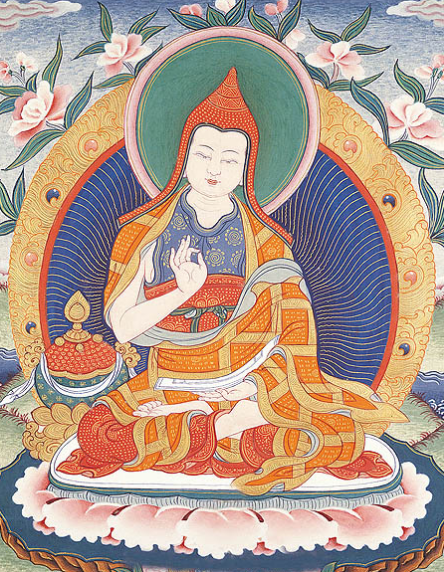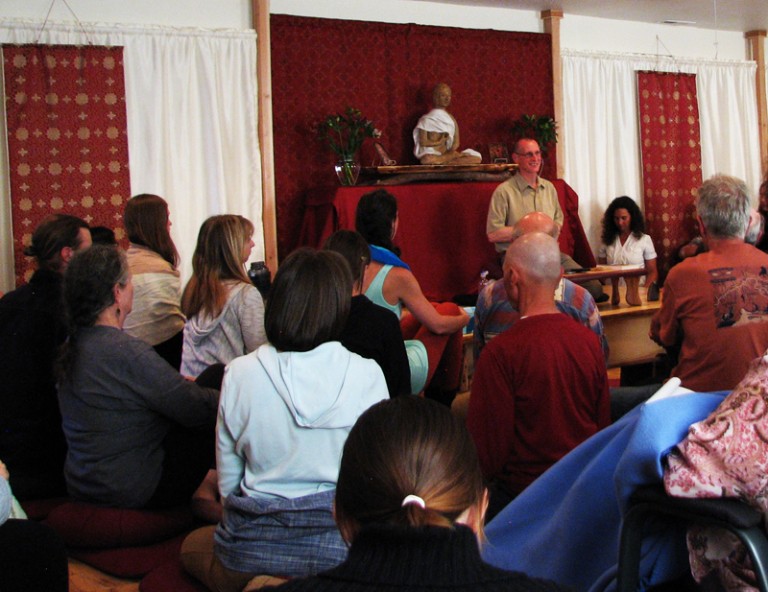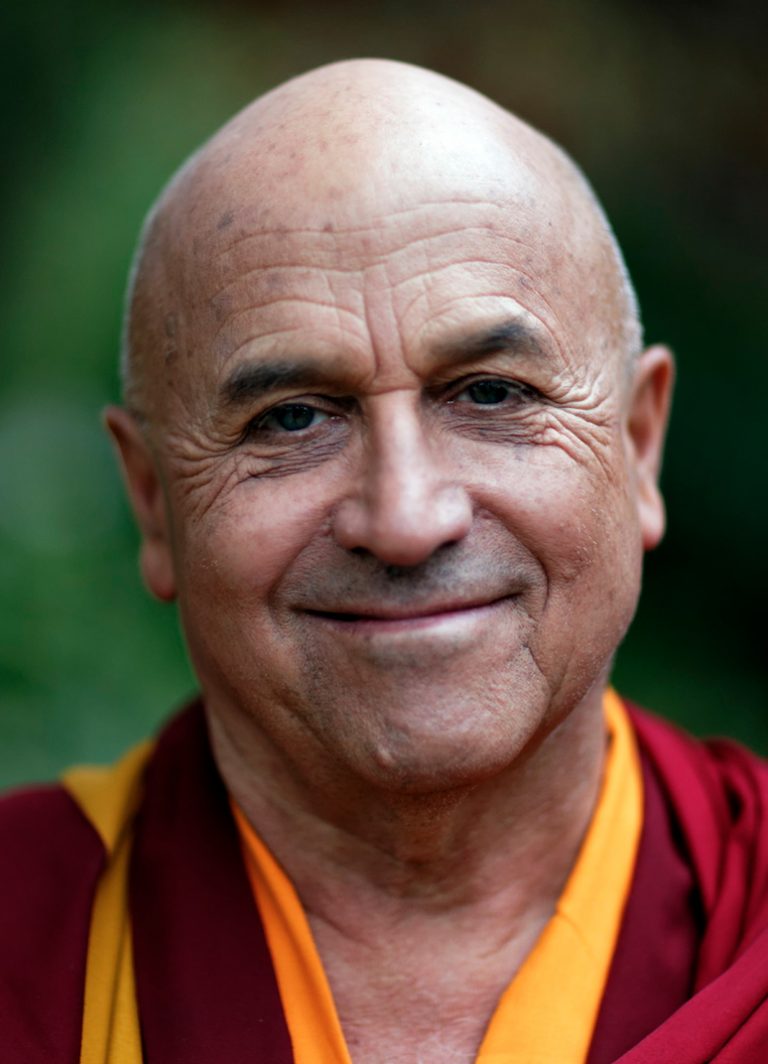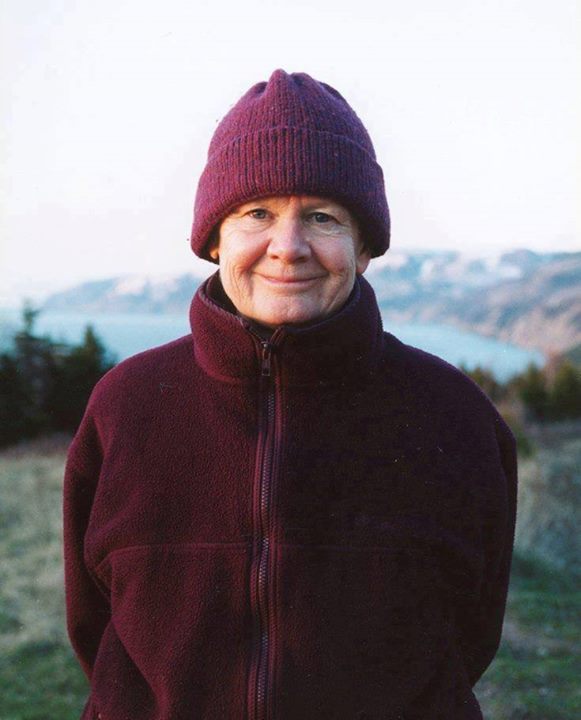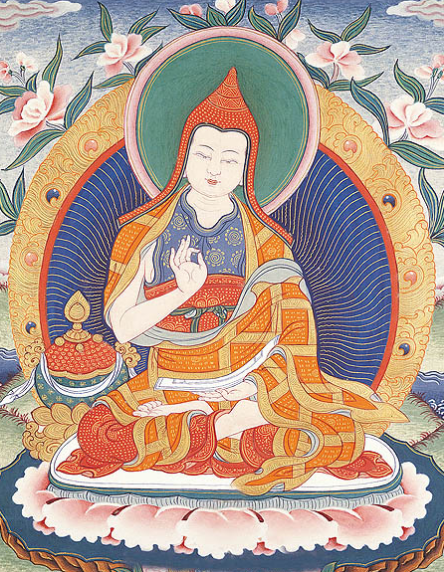Leading neuroscientists and Buddhists agree: “Consciousness is everywhere”
BY SAM LITTLEFAIR|

New theories in neuroscience suggest consciousness is an intrinsic property of everything, just like gravity. That development opens a world of opportunity for collaboration between Buddhists and neuroscientists.
”The heart of consciousness,” says neuroscientist Christof Koch, “is that it feels like something. How is it that a piece of matter, like my brain, can feel anything?”
In 2013, Koch, one of the world’s leading experts on consciousness, went to a monastery in India to discuss that question with a group of Buddhist monks. He and the Dalai Lama debated neuroscience and mind for a full day.
They had different approaches. Koch offered contemporary scientific theories on the subject, and His Holiness countered with ancient Buddhist teachings. Yet, at the end of their discussion, the two thinkers agreed on almost every point.
“What struck me most was his belief in what we in the West call ‘panpsychism’ — the belief that consciousness is everywhere,” says Koch. “And that we have to reduce the suffering of all conscious creatures.”
Panpsychism, the idea of universal consciousness, is a prominent thought in some branches of ancient Greek philosophy, paganism, and Buddhism. And it has been largely dismissed by modern science — until recently.
